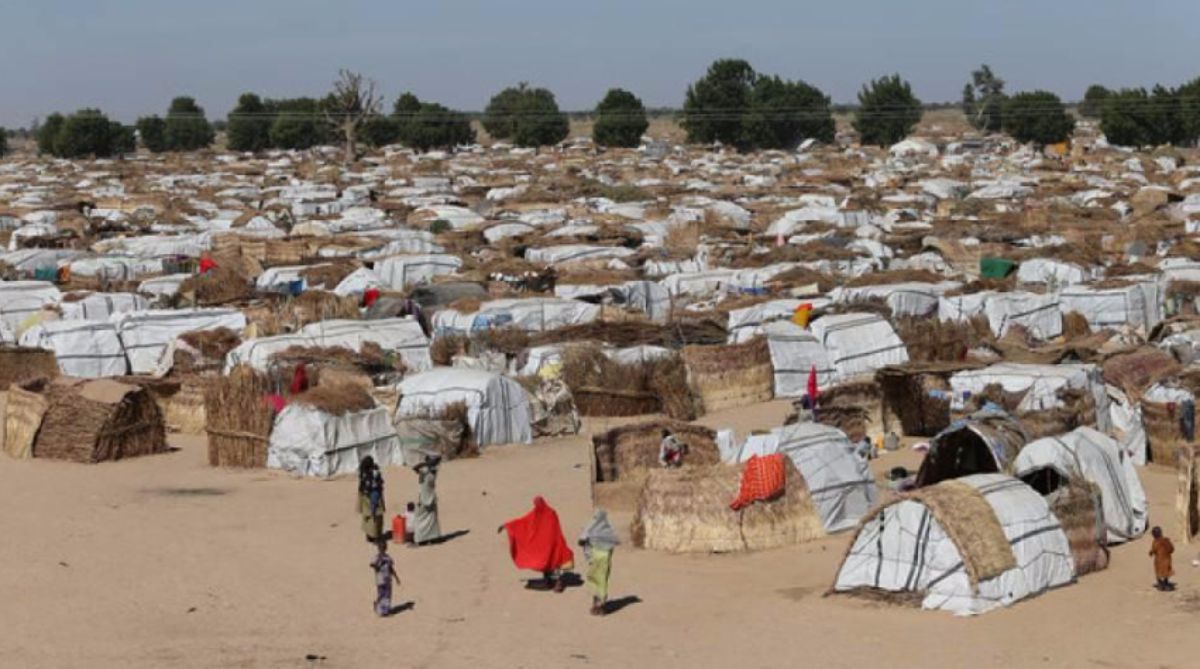As part of its commitment to fulfilling its mandate and providing sustainable solutions to the challenges faced by internally displaced persons (IDPs), the Federal Government has Flagged off an Agricultural Empowerment program to support them.
The National Commission for Refugees, Migrants and Internally Displaced Persons (NCFRMI) initiated the Renewed Hope Agricultural Empowerment project in partnership with the Federal Ministry of Agriculture and Rural Development, which was launched in Nasarawa Local Government Area of Nasarawa State, located in North Central Nigeria.
The Federal Commissioner of the National Commission for Refugees, Migrants, and Internally Displaced Persons (NCFRMI), Tijjani Aliyu, stated that this action aligns with the Commission’s mandate and his vision to rehabilitate displaced populations.
He stated that the Project represents a significant step in the appropriate direction towards this goal.
“Nigeria experiences high internal displacement due to its large population, competition for resources, climate change and the attendant conflicts and insecurity. As of June 2024, Nigeria is host to about 6 million internally displaced persons due to ongoing internal conflicts, armed banditry and natural disasters,” he disclosed.
According to him, the initiative seeks to enhance food security, economic stability, and overall well-being of IDP communities thereby fostering self-reliance and community resilience.
“The project is designed to ensure that IDPs take part of the farm produce for subsistence, while the remaining produce is purchased by humanitarian agencies such as The NCFRMI, Commission, NEMA, NEDC other agencies and the private sector – putting money in the pockets of the IDPs,” he explained.
The Federal Commissioner noted that NCFRMI is strategically placed and logically positioned to be the driving force for the National Policy on IDPs, as well as the focal coordinating agency for the national response to internal displacement, especially in the provision of durable solutions.
The Minister of Agriculture and Food Security, Senator Abubakar Kyari said the project was not only remarkable but essentially timely as it further restates the commitment of President Bola Tinubu’s Renewed Hope Agenda, especially the emphasis on inclusivity as encapsulated in his Eight Point Agenda.
He described the Project as a beacon of hope for thousands of Nigerians who have been displaced from their homes and sources of livelihoods.
He noted that it was a comprehensive initiative designed to empower IDPs with agricultural skills, resources, and market linkages, thereby enabling them to rebuild their lives and contribute meaningfully to society.
“Our nation has witnessed an unprecedented humanitarian crisis, with countless citizens displaced from their homes and deprived of their livelihoods. The plight of our internally displaced persons (IDPs) is a matter of grave concern, and it demands our collective attention and action.
“These resilient individuals have endured unimaginable hardships, including the loss of loved ones, homes, and sources of income,” the Minister lamented
The Minister stated that Agriculture has the potential to be a lifeline for vulnerable populations as the project is not merely about assisting but restoring hope, dignity, and self-sufficiency.
Kyari added that in addition to food security, the Project aims to create economic opportunities for IDPs by establishing market linkages and supporting the development of agribusiness ventures and cooperatives.
“By empowering IDPs with the necessary skills, resources, and support, we can help them rebuild their lives and contribute to the overall development of our nation.
“This project is a testament to our commitment to addressing the challenges faced by IDPs and creating opportunities for their productive engagement and reintegration into the society,” Kyari said.
Representing the United Nations High Commission for Refugees, UNHCR, the Head of the Maiduguri Office, Nicolas Kaburaburyo said agriculture plays a vital role in solving food security challenges.
He said the UNHCR is shifting its programmes to sustainable programming to align with the solutions to internal displacements and returnees.
According to him, livelihoods is one of the key pillars of the UNHCR sustainable programming approach, and agriculture Is the biggest component of the livelihood pillars.
He stated that discussions are currently in progress with state governments regarding agricultural initiatives, with an emphasis on the cultivation of both cash crops and food crops.





